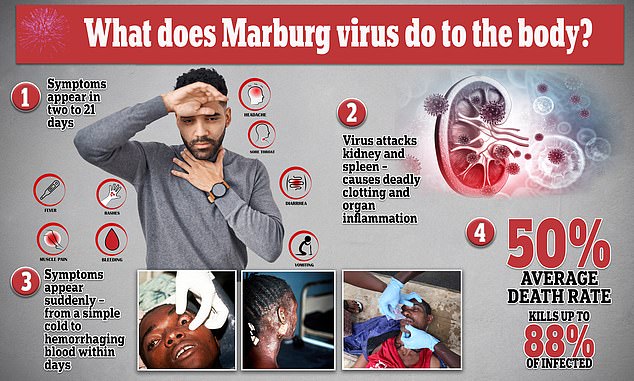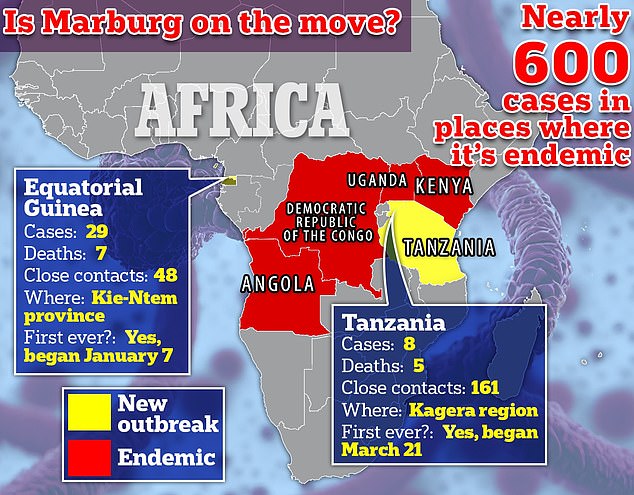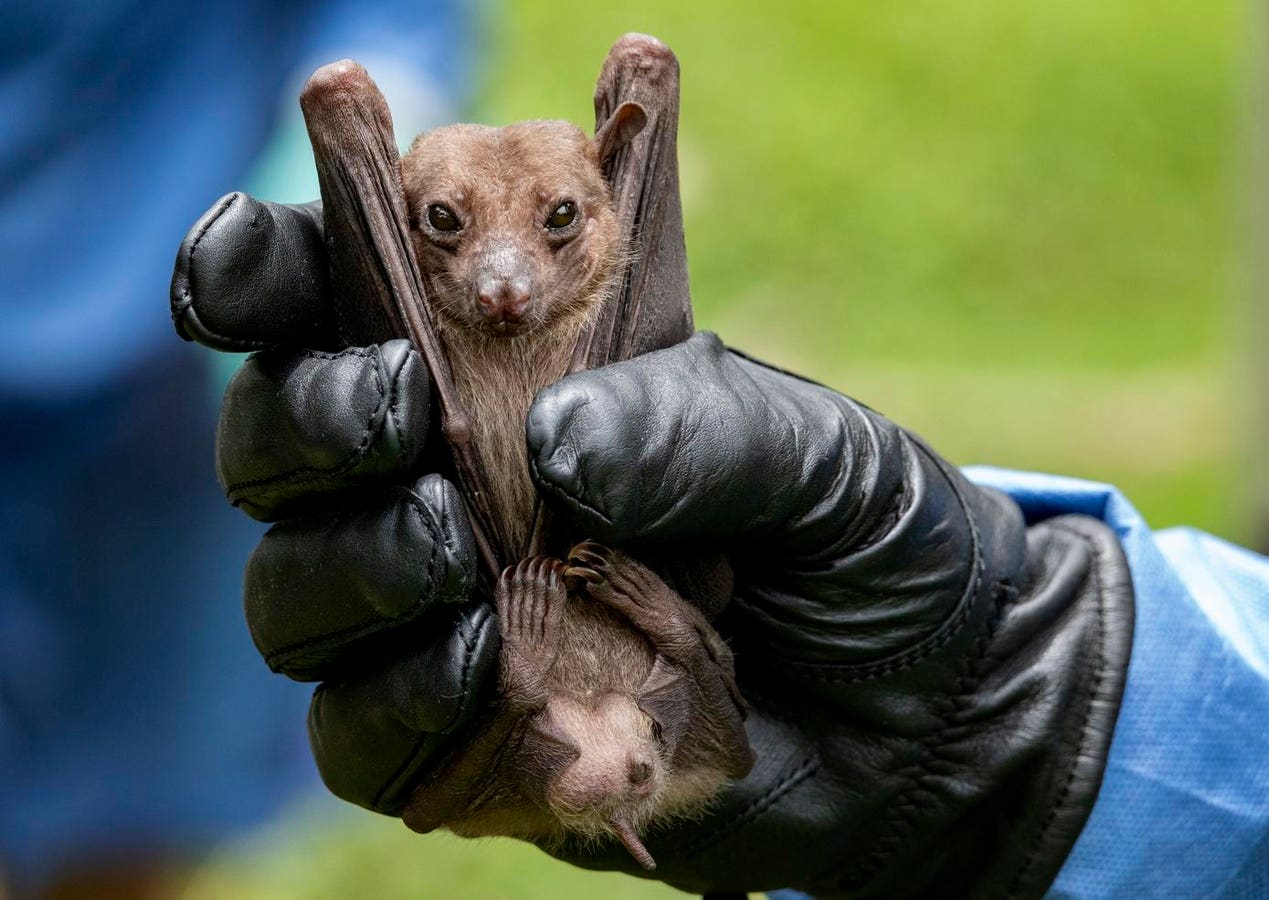nivek
As Above So Below
One of world's deadliest diseases kills nine in Equatorial Guinea: Fresh outbreak fears for incurable Marburg pathogen with up to 90% mortality rate
Nine people have been killed in Equatorial Guinea by one of the world's deadliest diseases. Marburg virus has a mortality rate of up to 88 per cent — similar to its cousin Ebola.It marks the first time the pathogen has ever been seen in the African nation, which is now scrambling to contain the outbreak.
Hundreds of people suspected to be infected with the virus, which currently has no cure, have already been quarantined.
Neighbouring countries Cameroon and Gabon have restricted movement along their borders over concerns about contagion.
International aid agencies have deployed teams on the ground in Kie Ntem, where all the cases so far have been spotted.
Sixteen people have also tested positive, the World Health Organisation (WHO) said yesterday.
Local officials initially raised the alarm last week after a mystery illness struck several people, causing Ebola-like symptoms.
Experts realised Marburg was to blame following preliminary tests.
The UN agency is convening an emergency meeting of the Marburg virus vaccine consortium later today to discuss the outbreak. No approved vaccine currently exists.
Marburg is initially transmitted to people from fruit bats and spreads among humans through direct contact with the bodily fluids of infected people, surfaces and materials.
Symptoms appear abruptly and include severe headaches, fever, diarrhoea, stomach pain and vomiting. They become increasingly severe.
In the early stages of MVD — the disease it causes — it is very difficult to distinguish from other tropical illnesses, such as Ebola, and malaria.
Infected patients become 'ghost-like', often developing deep-set eyes and expressionless faces.
This is usually accompanied by bleeding from multiple orifices — including the nose, gums, eyes and vagina.
The first outbreak was seen in 1967 in Germany and Serbia.
Dr Matshidiso Moeti, the WHO regional director for Africa, said: 'Marburg is highly infectious.
'Thanks to the rapid and decisive action by the Equatorial Guinean authorities in confirming the disease, emergency response can get to full steam quickly so that we save lives and halt the virus as soon as possible.'
MVD is normally associated with outbreaks in Angola, the Democratic Republic of the Congo, Kenya, South Africa and Uganda.
The WHO has deployed experts to support the affected districts in testing and contact tracing and providing medical care to those with symptoms of the disease.
Further 'health emergency experts' in epidemiology, case management, infection prevention, laboratory and risk communication are also being deployed, the WHO confirmed yesterday.
There are no vaccines or antiviral treatments approved to treat MVD.
(More on the link)
.




